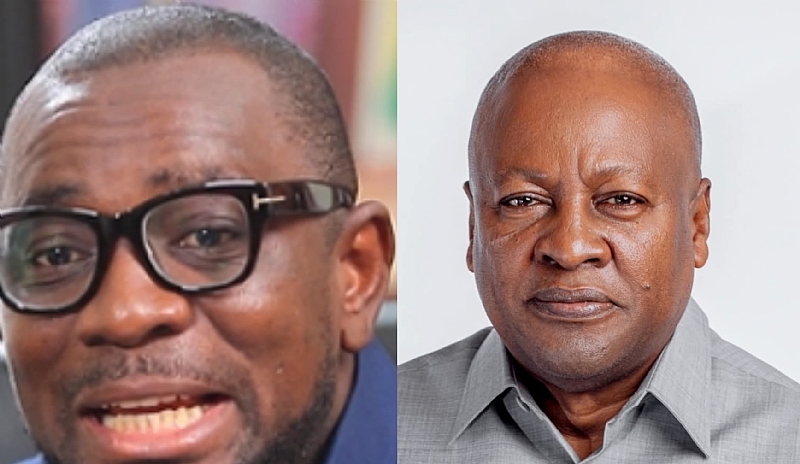Kennedy Osei Nyarko, the New Patriotic Party (NPP) Member of Parliament for Akim Swedru, has vehemently refuted the notion that President John Dramani Mahama’s administration requires more time to demonstrate tangible achievements. In a Facebook post dated August 28, 2025, Nyarko contended that eight months is ample time for a government to showcase significant progress, citing the swift implementation of flagship policies by previous administrations as a benchmark. He specifically referenced the Akufo-Addo government’s introduction of the Free Senior High School (SHS) policy within weeks of assuming office in 2017 and the implementation of the paperless port system, which resulted in increased revenue generation. Nyarko emphasized that governance should be evaluated based on concrete outcomes, not justifications for inaction.
Nyarko’s assertion stems from the principle that effective governance demands swift action and demonstrable results, especially in addressing pressing national issues. He argues that eight months provides sufficient opportunity for a government to lay the groundwork for key reforms and implement policies that yield immediate benefits for the populace. By drawing a comparison with the Akufo-Addo administration’s early successes, Nyarko implicitly criticizes the Mahama government’s perceived lack of similar achievements within the same timeframe. He posits that the Ghanaian public has a right to expect tangible improvements within a reasonable period and that excuses for delayed progress are unacceptable.
The MP’s comments reflect a broader debate surrounding the Mahama administration’s performance since its inauguration in January 2025. Public opinion is sharply divided, with supporters arguing that the government inherited significant economic challenges, including substantial debt burdens, which require time to address effectively. They maintain that systemic reforms and long-term solutions are necessary for sustainable progress and that judging the government’s performance based on short-term gains is unfair and unrealistic. This perspective emphasizes the complexity of governance and the need for patience in allowing the administration to implement its comprehensive development agenda.
Conversely, critics, including Nyarko, contend that the government has not demonstrated sufficient urgency in tackling the pressing issues facing the nation. They argue that the economic hardships faced by citizens demand immediate relief and that the government should prioritize quick wins to alleviate the burden on the population. They point to the rising cost of living, unemployment, and other socio-economic challenges as evidence of the government’s perceived inaction. This viewpoint emphasizes the importance of accountability and the need for the government to deliver tangible results that directly impact the lives of ordinary Ghanaians.
Nyarko’s call for measurable results underscores the importance of performance-based governance and the expectation that elected officials should be held accountable for their promises and actions. He implicitly challenges the Mahama administration to demonstrate its commitment to improving the lives of Ghanaians by implementing policies that yield tangible and measurable outcomes. His Facebook post serves as a public call for greater transparency and accountability in governance, urging the government to move beyond rhetoric and deliver concrete results.
The debate surrounding the Mahama administration’s performance highlights the inherent tension between the need for long-term strategic planning and the demand for immediate solutions to pressing national challenges. While supporters advocate for patience and understanding, critics demand swift action and tangible improvements. This ongoing dialogue reflects the dynamic nature of democratic governance and the importance of continuous public engagement in holding elected officials accountable for their performance. The ultimate measure of the Mahama government’s success will be its ability to balance these competing demands and deliver meaningful results that improve the lives of all Ghanaians.














